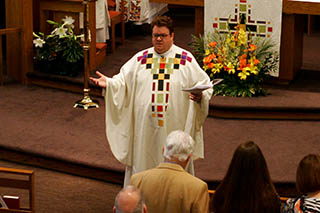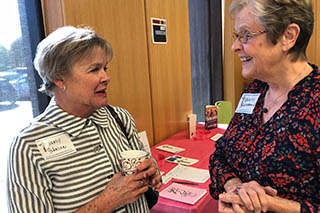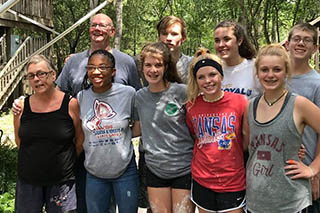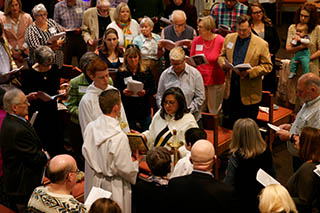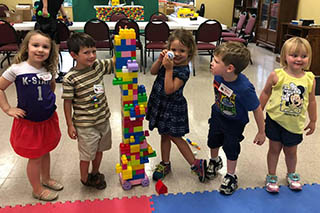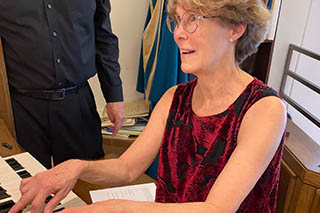Interfaith Service Leaflet
Sermon from February 12, 2023
Connecting with You for February 12, 2023
The Sermon from February 5, 2023
Sermon From 1/22/2023
Annual Meeting Video
Sermon for July 10, 2022
What is your Super Power?
Homecare has been identified as the preferred arrangement for temporary or long-term caregiving as well as care-receiving. Undoubtedly, home care is the preferred option for temporary spousal caregiving. Issues that result in the decision to place a loved one needing care in a non-home setting for often relates to a person’s mental and physical abilities, psychological well-being, autonomy, caregiver burden, best interests of the care-receiver, and security.
During the pandemic, my elderly aunt suffered long-Covid effects. She was physically able to stay in her home, but needed 24/7 assistance with meal planning, meal preparation, bathing, dressing, walking, shopping, house cleaning, and financial management. She had four adult children, including adult grandchildren and little great-grandchildren.
From my vantage point, I observed that each of my aunt’s children and grandchildren demonstrated a personal caregiving superpower—their own spiritual gift(s) of love. One of my aunt’s sons managed her finances. A daughter and adult granddaughter temporarily moved into her home to provide personal care, meal planning/cooking, and housekeeping. A second daughter brought in meals on the weekends, did the weekly shopping, and took her mom on out-of-the-house diversions. Another son provided home maintenance and grounds-keeping tasks. Each of the kids, and grandchildren visited in their usual fashion and offering stimulation. My aunt was joyful! Everyone took turns spending time with her so the in-house daughter and granddaughter could get away for a few hours, an evening, weekend, or holiday.
As I observed from a distance, I thought that identifying one’s caregiving superpower may just be a remarkable way to share caregiving tasks. Each person had a superpower they were proud to offer. They gave of it lovingly and freely. It afforded each to display their strength(s). It was organic and natural. Doing so lessened the burden on any single individual and minimized conflict as each person respected one another’s boundaries. They devised a flexible week-by-week schedule to handle emergencies and provide respite. When there was a crisis (and there were), someone was always able to respond with immediacy. They utilized home care and ultimately hospice services, including chaplain care that was available to any member of the family.
Next time you or a loved one needs caregiving, examine your spiritual gifts. Challenge others to look for theirs. Set boundaries. Build a flexible schedule and offer one another respite.
Submitted by Suzan Olson, PhD, MHS, RN, Board Certified Chaplain
Long-Distance Care Giving
Imagine for a moment that you have a loved one who lives a distance from you and has become desperately ill. You would give anything to be in closer proximity so that you could reach out and help with the care of this special relative or friend; instead, you will have to create long-distance caregiving. This was the situation in which my husband and I found ourselves some twenty months ago. With Covid rearing its ugly head and complicating life for everyone, our eighteen-year-old beloved grandson was diagnosed with Lymphoblastic Lymphoma, a B-cell blood cancer not unlike Leukemia. This was the beginning of 18 months of intravenous chemotherapy and accompanying treatments. Our grandson does not live near us, but in a community some forty miles away. We asked ourselves how we could help him to endure the nauseating treatments and conquer this hideous disease from a distance.
Our long-distance caregiving began with telecommunications as he was too sick to talk on the phone; we e-mailed frequently and texted almost daily. We also wrote and mailed notes of encouragement, love, and hope. When he was strong enough to carry on a conversation, we phoned and FaceTimed. Keeping food down was a huge issue, so we set aside every Friday for over a year to prepare a meal and dessert of his choosing; frequently, when we drove to his family’s home to deliver the food that he had requested, we found him unable to consume a single bite without becoming violently ill. As he became stronger and felt like doing something outside of his home or the medical center, we began to take him on short excursions, such as to the Nelson Art Gallery, Union Station, and hockey games when Covid would permit. Very recently, we took him with us to view the migration of Sand Hill Cranes in mid-Nebraska which we all enjoyed!
Currently, our amazing grandson’s treatment has been changed to oral chemotherapy; he will remain in this stage of treatment for two more years. This delivery system seems to be much easier on his body and his mind, and he is now able to feel fairly well on most days. We continue to be in frequent touch with this amazing young man and his family, and we feel that we have contributed to his healing as best we could. In a perfect world, no other families will be faced with a situation similar to ours and with the need for such measures; however, should the need arise, a heartful of love can create long-distance caregiving.
Submitted by Margaret Walkenshaw
